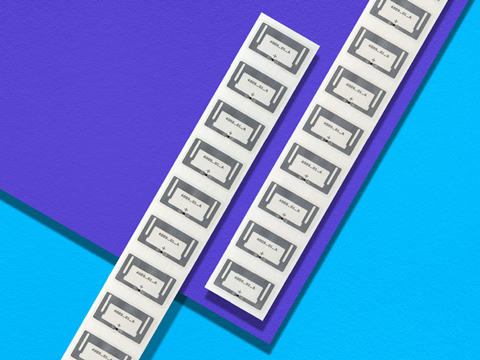
Avery Dennison has announced the launch of its AD Minidose U9XM Ultra High Frequency (UHF) and Radio Frequency Identification (RFID) high memory inlays and tags, designed for the identification of small pharmaceutical and healthcare items such as syringes, vials and various packaging formats.
Its main applications include source tagging, end-to-end traceability and product authentication. The company states the AD Minidose U9XM has been approved for use in healthcare applications by Auburn University’s RFID Lab, and it is one of the smallest inlays available, compliant with ARC Category S for pharmaceutical and healthcare applications.
The new products’ higher memory aims to enable converters, system integrators, healthcare providers, pharmaceutical and medical device Original Equipment Manufacturers (OEMs) to store additional product information such as expiry dates and batch/lot information on the item.
This hopes to provide reliable access at any point in the supply chain without constant cloud lookups, making tracking more efficient and dependable. The data available can help to verify product authenticity and reduce the risk of counterfeit goods infiltrating the supply chain. The provision of accessible and accurate product information supports efforts to increase patient safety and care quality.
Apparently, the NXP U9XM chip has a self-adjust feature to maximize product performance. It is also said to provide high read reliability and enhanced performance, even when small tagged items are densely packed in close proximity.
AD Minidose U9XM is available in several different memory sizes from 96 to 496 bit EPC memory, aiming to offer flexibility in encoding, read speed, security, cost, standard certification and interoperability.
Mathieu De Backer, vice president of innovation and sustainability at Avery Dennison Smartrac, says: “We continue to see a growing demand for small, subtle inlays and tags with high memory, particularly for pharmaceutical and healthcare applications. Combining this provision with long range readability makes the AD Minidose U9XM ideally suited to environments where product authentication and traceability are essential.”
Earlier this month, Avery Dennison introduced AD Dogbone and AD Squarewave, its first industrial UHF and RFID inlays and tags to feature the Impinj M830 chip, designed for maximum performance in a range of automotive, logistics, and industrial environments. Ideally suited for the tagging of automotive and logistics items, its main applications include inventory, supply chain management, and Returnable Transit Items (RTIs).
As part of our Innovation Spotlight series, in June Checkpoint Systems explained how RFID tags can help companies reach sustainability goals by boosting Reduce, Recycle and Reuse. The company stated that by providing precise inventory monitoring, RFID technology helps prevent food waste and reduce landfill waste, and outlined how RFID can be used to facilitate product reuse.
If you liked this story, you might also enjoy:
How are the top brands progressing on packaging sustainability?
Sustainable Innovation Report 2024: Current trends and future priorities
Reuse vs. single use – which is better for the environment?
The ultimate guide to global plastic sustainability regulation













No comments yet